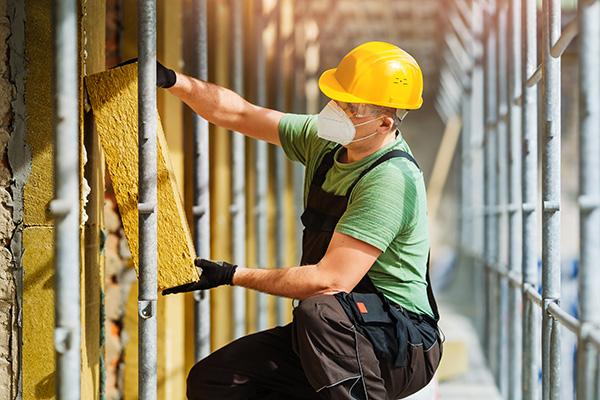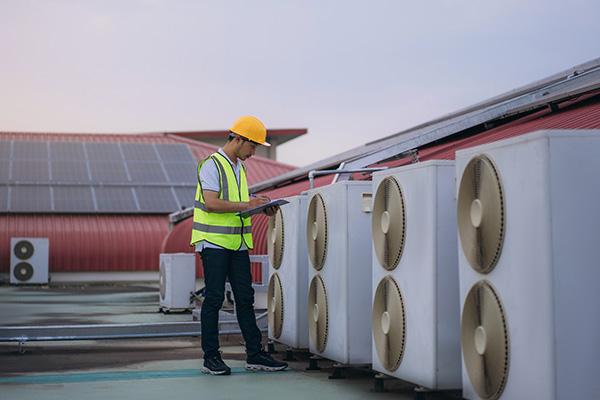Renovating both public and private buildings was singled out in the European Green Deal as a key initiative to drive energy efficiency in the sector and deliver on objectives.
To pursue the dual ambition of energy gains and economic growth following the COVID-19 pandemic, the Commission published in 2020 the strategy "A Renovation Wave for Europe – Greening our buildings, creating jobs, improving lives" along with an action plan and a document presenting available EU funding. Reinforced, accessible and more targeted funding is a principle of the Renovation Wave. Funding, also for research and innovation and to address market barriers and available technical assistance, will be generated through a combination of direct investment and the leveraging of private investments.
The Renovation Wave aims to at least double the annual energy renovation rate by 2030 and in addition to reducing emissions and creating green jobs in the construction sector which is dominated by local businesses, it will improve overall living standards for Europeans.
Main focus of the Renovation Wave
The Renovation Wave initiative builds on the national long-term building renovation strategy, other aspects of the Directive on Energy Performance of Buildings, and building-related aspects of each EU country’s national energy and climate plans (NECPs).
The strategy identifies 3 focus areas
- Tackling energy poverty and worst performing buildings
- Renovation of public buildings
- Decarbonisation of heating and cooling
With an estimated 40 million Europeans unable to afford to heat their homes properly in 2022, renovations will help tackling energy poverty. They can improve the health and wellbeing of vulnerable people while reducing their energy bills – as outlined in the 2020 Commission recommendation on energy poverty, which was part of the Renovation Wave initiative – and later highlighted also in the Commission recommendation on energy poverty, published in October 2023.
To decarbonise our buildings, well-trained professionals are key. Particularly in the field of building renovation and decarbonisation of heating expertise, the EU construction sector needs more and better-skilled workers. In addition to the Renovation Wave strategy, the well-established BUILD UP Skills initiative as well as the 2023 European Year of Skills aim to address this, along with other skills gaps in the dual challenge of green and digital transition. For more information or to contribute, contact ENER-BUILDINGS ec [dot] europa [dot] eu (ENER-BUILDINGS[at]ec[dot]europa[dot]eu) or your national contact point.
ec [dot] europa [dot] eu (ENER-BUILDINGS[at]ec[dot]europa[dot]eu) or your national contact point.
More detail and information on the 3 focus areas
The New European Bauhaus
In October 2020, the Commission also launched the New European Bauhaus initiative which provides a forum where Europeans can come together to share ideas on climate-friendly architecture. The initiative comprises of 3 phases: co-design, delivery and dissemination
More about the initiative’s ambitions, timeline and initial structure
EU building projects
The Commission supports many building renovation projects, as well as research and innovation, through its Horizon Europe programmes including
- the BUILD UP initiative, a portal for sharing knowledge on how to make buildings more energy efficient
- the BUILD UP Skills initiative, which aims to deliver building renovations offering high-energy performance as well as new nearly zero-energy buildings.
- the 4RinEU project, which ran from October 2016 to to June 2021, aiming to provide tools and strategies to encourage large-scale renovation of existing buildings and promoting the use of renewable energies (see “Home improvements for the planet”)
For more EU-funded energy efficiency projects, visit the Horizon 2020 energy efficiency data hub
Documents
Related links
- Energy poverty recommendation (EU) 2023/2407 | Staff working document SWD(2023) 647
- Renovation Wave communication COM 2020 662 final | Staff working document SWD(2020) 550 final
- Energy poverty recommendation (EU)2020/1563 | Staff working document SWD(2020)960 final
- Smart readiness indicator
- Factsheet – The European Green Deal – Renovation Wave (2020)
- Study – Building energy renovation activities & uptake of near zero-energy buildings in the EU (2019)
- Energy Performance of Buildings Directive
- A European Green Deal
- Recovery plan for Europe
- Energy poverty
- Video – Renovation Wave (2020)



